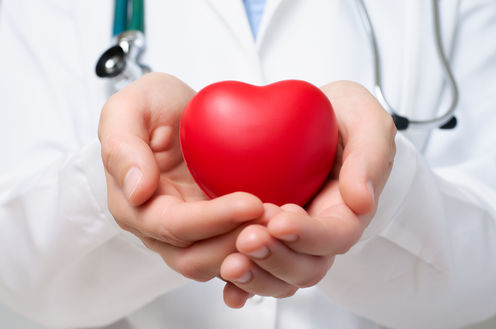
More Australians may be able to donate or receive organs if proposed NHMRC guidelines are adopted. Shutterstock
Australia has never had a great deceased organ donor rate – and it fell last year. But proposed guidelines from the National Health and Medical Research Council (NHMRC) could change how donor organs are obtained and allocated for the better.
DonateLife Australia, the government body responsible for organ donation and transplantation, has just announced there were 16.1 deceased organ donors per million people in Australia in 2014. This represents a 5% decline from 2013 and maintains Australia’s deceased organ donor rate in the bottom half of OECD countries. It’s important to note, though, that the 2013 rate was the highest ever recorded.
More people in this country die waiting for organ transplants than in many other developed countries, but it’s not all bad news: Australia has a long and successful history in organ transplantation.
Outcomes following organ transplantation are world leading – more than 90% of patients who receive a kidney, heart, heart-lung or liver transplant are alive a year later. And more than 90% of people who receive a transplant have normal function of their new organ. The number of organs retrieved from each deceased donor is also higher than in many countries.
A positive step
Better news still is that more Australians may soon be able to donate or receive organs. The NHMRC’s recently released Draft Ethical Guidelines for Organ Transplantation from Deceased Donors spells out measures designed to increase both the number of organs considered suitable for donation and the number of people who may receive them.
As organs for transplant are scarce and demand high, they have generally been offered to people for whom a long-term benefit is most likely. This has meant that older Australians and those who have other health conditions unrelated to their need for a transplanted organ have been less likely to receive one.
If a kidney dialysis patient has a health condition that reduces her five-year survival prospects to less than 80%, for instance, she would likely be ineligible for kidney transplantation.
The new guidelines explicitly exclude arbitrary discrimination, so age and past lifestyle will no longer mean someone can’t receive a transplant. Lifestyle has long been a point of contention in organ donation ethics, as sometimes a person needs a transplant due to risky health behaviours such as smoking or alcohol abuse.
A potential recipient’s capacity to alter her lifestyle post-transplant remains relevant, but the draft guidelines say discrimination based on the cause of her disease is unethical.
Becoming more inclusive
The complex calculations currently performed to decide who can donate or receive organs often have had unwelcome effects. Only the healthiest organs are retrieved and only the healthiest potential recipients selected. While it’s hard to argue with practices that promote long-term benefits from donation, many potential recipients with a desperate need for an organ are excluded.

As things stand, potential donors are excluded due to risk factors, such as health conditions that did not contribute to their deaths. Because this policy reduces the number of organs that can be used for transplantation, it doesn’t truly serve people who should benefit most from organ donation – potential recipients who are very ill.
But under the new guidelines, organs deemed to be “higher risk criteria organs” may be donated for transplant in certain cases. High-risk organs come from a deceased person who may have had an infectious disease, for instance, or a separate medical condition to the one causing their death. The guidance proposes that these organs be offered to those who do not meet the standard eligibility criteria for transplant.
The draft guidelines could lead to more lives being saved by allocating organs that would previously have gone to waste. These organs could be offered to people who are in desperate need but who would otherwise have been rejected for transplant.
This is not to say that the sickest will only be given organs destined to fail. Minimum standards will still have to be met. And those who are offered a higher risk criteria organ will be fully informed of its potential risks and limitations – and have the choice to accept it or not.
The draft guidelines also make clear the expanded criteria will not compromise current standards, which ensure the most viable organs are allocated to those who stand to benefit the most.
A better future
The flip-side of opening up donation like this is that these changes will likely reduce average survival rates for transplants. While at first glance this may seem detrimental, even contrary to the goals of transplant medicine, we believe the changes will be beneficial.
Organ donation policy must strike a balance between prioritising survival rates following a transplant and helping those who need a transplant the most. In light of Australia’s declining deceased organ donation rates, the NHMRC draft guidelines represent a welcome move towards increasing access to this life-saving resource.
The ethos behind the guidelines, which are now open for public comment, is clear: fairness and transparency in decision-making around organ donation and transplantation are vital.
Previous organ allocation policy, while leading to excellent survival rates, has made Australia’s organ scarcity problem worse. The proposed guidelines place patients and their needs – both as donors and recipients – at its heart. If adopted, they will help increase the number of organs that can be donated and received in Australia.
Ainsley Newson is a member of the NSW Clinical Ethics Advisory Panel, which has considered aspects of organ donation.
Aric Bendorf does not work for, consult to, own shares in or receive funding from any company or organisation that would benefit from this article, and has no relevant affiliations.
